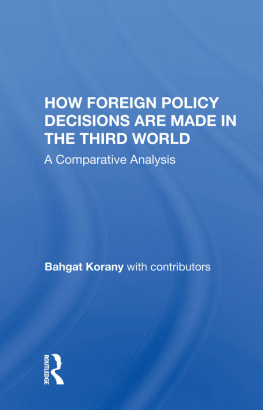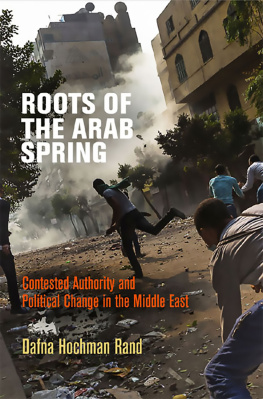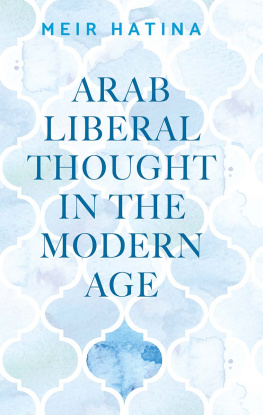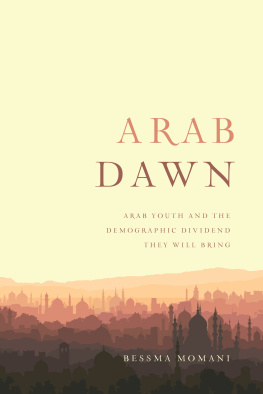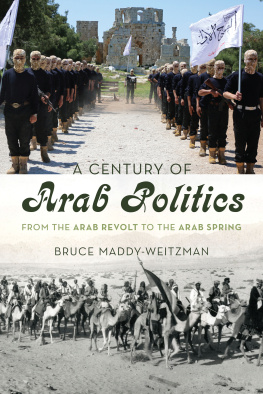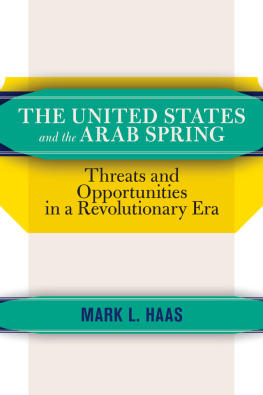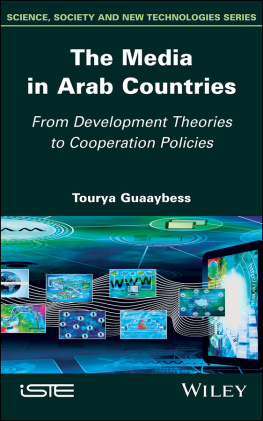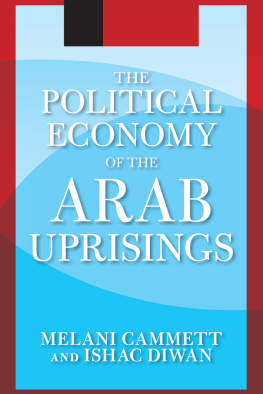Copyright 2014 by
The American University in Cairo Press
113 Sharia Kasr el Aini, Cairo, Egypt
420 Fifth Avenue, New York, NY 10018
www.aucpress.com
All rights reserved. No part of this publication may be reproduced, stored in a retrieval system, or transmitted in any form or by any means, electronic, mechanical, photocopying, recording, or otherwise, without the prior written permission of the publisher.
ISBN 978 977 416 658 7
eISBN 978 161 797 621 6
Version 1
This book was initially prepared as the tenth-anniversary volume of the well-established Arab Human Development Reports, published since 2002 by the United Nations Development Program (UNDP). For this massive international project that began in March 2010, I incurred many debts. My first debt is obviously to my colleagues who wrote the various chapters. Not only did they work hard to respect strict deadlines, but they also accepted graciously the analytical vision, the conceptual framework, and my frequent demands for revisions. They proved over and over again that productive team work is possible in the Arab world, that it is the wave of the future and indeed the most effective one.
At the administrative level the managers of the AUC Forum kept the team and the deadlines running smoothly from its inception. When Shaima Ragab had to move on, Miriam William took her place to make both the transition and the work continue on track as planned. Dr. Yasmine Farouk, an energetic young scholar at Cairo University, backed me up well as the efficient research assistant. My colleague Dr. Ali Hadi, the distinguished university professor of mathematics at the American University in Cairo, was available to iron out all our problems in making tables and ensure that our statistics were correct, well integrated into our texts, and, as far as possible, accessible to the non-specialized reader.
Special appreciation goes to colleagues who submitted background papers on specific topics. They helped back up many of the chapters with proper evidence. These papers are availablemostly in Arabicon the AUC Forum website (www.aucegypt.edu/research/forum). I also owe a huge debt of gratitude to members of the Advisory Board appointed by the UNDP, who met twice to comment on the contents of the draft and offer feedback that improved the present book. I would like to thank Dr. Wael Kamal of the University of Massachusetts, who readily agreed to allow his recent artwork, the door of Shaykh Zayeds mosque in Abu Dhabi, to become this books cover.
This is the fourth publication of the AUC Forum in collaboration with the American University in Cairo Press. My thanks go to Nadia Naqib, Johanna Baboukis, Basma El Manialawi, Neil Hewison, and AUCPs energetic new director, Nigel Fletcher-Jones. Because of the special circumstances surrounding this UNDP project and its publication in book form, Margaret Koranys support for this project, more than with any other of my books, has been very effective, especially when frustration and disillusionment were about to get the better of me. This book is dedicated to her.
Since their inception in 2002, as the UNDPs repeated and written assertions show, these Arab Human Development Reports are conceived as the analyses of independent Arab researchers, not always with UNDP approval of their views. To its credit, the UNDP has continued to finance these projects, this one no exception. From the very start and through more than three years, UNDP involvement was present through research support, travels and meetings of the research team, youth discussion groups, and the Advisory Board. I am extremely grateful for this support, without which this text would not have been prepared in the first place. The official launch was announced to take place in Tunisthe cradle of the Arab Springin May 2012. Government dignitaries and regional and international media were sent official invitations and the UNDP website specified the date. However, for reasons that were never made entirely clear, the UNDP suddenly and unilaterally decided not to proceed with the launch and the official publication.
In the end, the UNDP authorized the publication of the work through another publisher. For this, very special thanks go to Dr. Adel Abdel-Latif of the UNDP New York office, Maya Abu Zeid of the Beirut office, and all their colleagues. They contributed to the release of this text from the desk drawers of international bureaucracy, helped us update some of the data after the passage of time, and offered technical assistance so that this book could appear in the excellent form that the AUC Press has produced. Neither they, nor anybody else other than the authors, are responsible for its contents.
This book looks at what Arab countries have achieved over the past decade and looks forward to what remains to be done to reach full development, noting the large gap between the regions potential and actual development. Its publication coincides with the beginning of a new era in the region. The chapter authors come from different Arab countries, from Bahrain in the Gulf to Morocco at the very western end of the Arab world. As a result of their close collaboration, this final published text is not a mere collection of chapters, the usual reader, but a volume in which the expertise of individuals converges into a coherent whole.
Baqer S. Alnajjar is professor of sociology at the University of Bahrain. He received his PhD from Durham University (England) in 1983. He has published extensively with both the Center of Arab Unity Studies (Beirut) and Dar Al-Saqi (London) on NGOs in the Gulf and the problems of Arab democratization.
Najoua Fezzaa Ghriss holds a PhD in educational sciences jointly from the University of Tunisia and the University of Louvain-La-Neuve, Belgium. She is currently a professor of pedagogy at the University of Tunisia, and a member of several professional associations. She has conducted numerous research assessments, and participated in many national, regional, and international workshops and seminars in the field of education.
Louisa Dris-At Hamadouche is an assistant professor of political science at University of Algiers 3, an associated researcher at CREAD (Research Center for Applied Economy and Development), and a member of ACM (Assembly of Mediterranean Citizens). She is also a member of the research unit directed by Oulhdj Ferdiou called Democratization of the Arab World: Chaotic Transitions. She is a consultant for the media about international issues.
Lina Khatib is director of the Carnegie Middle East Center in Beirut. Previously, she was the co-founding head of the Program on Arab Reform and Democracy at Stanford Universitys Center on Democracy, Development, and the Rule of Law. Her research interests include the international relations of the Middle East, Islamist groups, political transitions, and foreign policy. She has also published widely on public diplomacy, political communication, and political participation in the Middle East.
Mustafa Yousef Khawaja specializes in the indicators and measurements of corruption. He has worked in the Palestinian Central Bureau of Statistics since 1994. He is coordinator of the National Statistical Monitoring System, supervises the Government and Anti-corruption Unit, and contributes to national, regional, and international projects on governance and anti-corruption measures.


